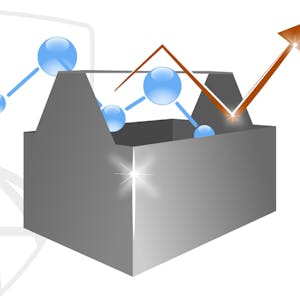In "The Data Scientist’s Toolbox" course, offered by Johns Hopkins University, students will receive an overview of the main tools and concepts in the data scientist's toolkit. The course covers a conceptual introduction to turning data into actionable knowledge, study design concepts, and practical tools such as version control, markdown, git, GitHub, R, and RStudio.
Throughout the course, students will learn to set up R, R-Studio, Github, and other useful tools. They will gain an understanding of the data, problems, and tools that data analysts use, and learn to explain essential study design concepts. Additionally, students will be able to create a Github repository.
The course is structured into four modules, each covering different aspects of data science fundamentals and tools. By the end of the course, students will have acquired a foundational understanding of data science and the necessary tools to work effectively in the field.
Certificate Available ✔
Get Started / More Info
This course is divided into four modules. Module 1 covers data science fundamentals, Module 2 focuses on R and RStudio, Module 3 delves into version control and GitHub, and Module 4 explores R Markdown, scientific thinking, and big data.
The first module, "Data Science Fundamentals," provides an introduction to the concept of data science, the nature of data, and the data science process. It also includes a summative quiz to reinforce the learning.
The second module, "R and RStudio," covers the installation of R and RStudio, a tour of RStudio, working with R packages, and projects in R. It also includes a summative quiz to test understanding.
"Version Control and GitHub," the third module, focuses on version control, Github and Git, linking Github and R Studio, and projects under version control. It also includes a summative quiz for assessment.
The final module, "R Markdown, Scientific Thinking, and Big Data," explores R Markdown, types of data science questions, experimental design, and big data. It also includes a summative quiz and an "Assemble your toolbox" activity to apply the knowledge gained throughout the course.
Data Science with Databricks for Data Analysts equips you with advanced skills in big data processing, machine learning, and problem-solving using Databricks and...
A Simple Scatter Plot using D3 js is a guided project focused on creating a basic scatter plot, utilizing linear and ordinal scaling for accurate data visualization....
Dive into the world of data visualization and storytelling with the "Daten über Visualisierungen teilen" course, designed to equip you with essential...
Learn to apply PySpark and Machine Learning to healthcare projects in this practical and effective course. Gain skills in PySpark fundamentals, model training and...